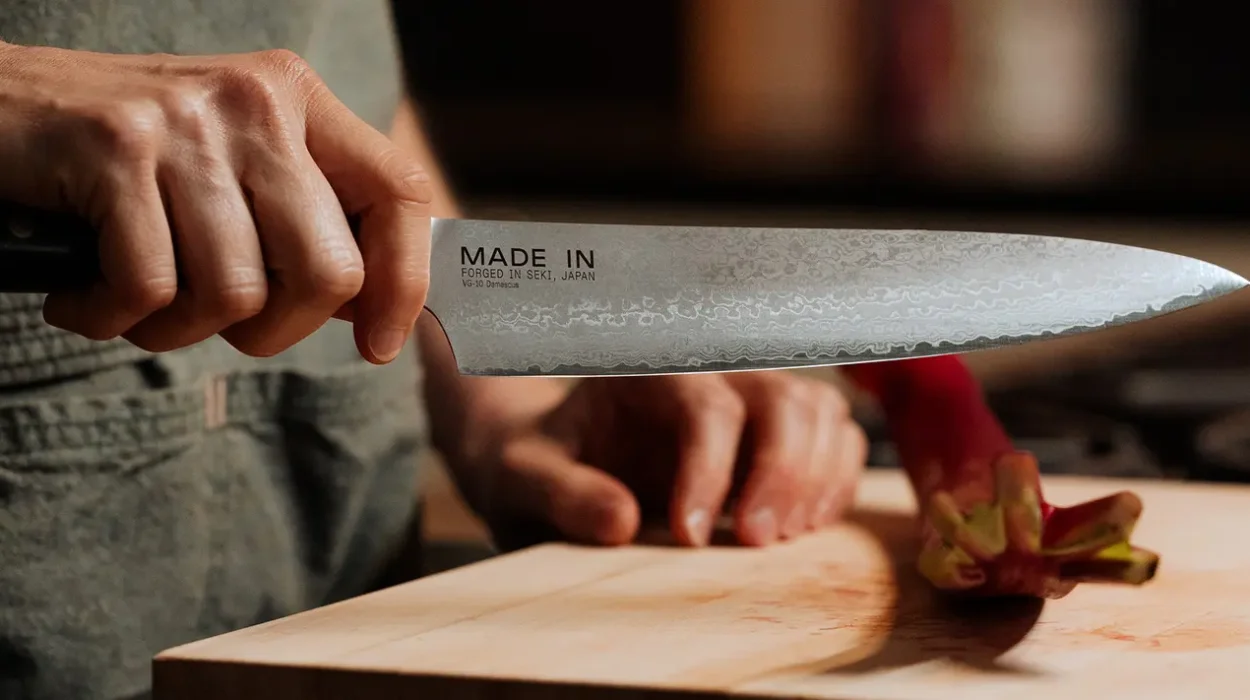When it comes to culinary tools, German knives have long been celebrated for their exceptional craftsmanship, durability, and precision. For kitchen professionals and enthusiasts alike, finding high-quality German knives under $100 can be a game-changer, offering both performance and affordability. In this guide, we’ll delve into the world of German cutlery, exploring the best options available for less than $100.

Why Choose German Knives?
German knives are renowned for their robust construction and versatility. Made from high-carbon stainless steel, these knives are designed to maintain sharpness while resisting corrosion. With a focus on weight and balance, German knives offer a comfortable grip and precise control, making them a preferred choice for chefs around the world.
Features of German Knives
German knives typically feature a full tang design, where the blade extends through the handle, providing strength and stability. The blades are often thicker and heavier, allowing for powerful chopping and cutting. Additionally, many German knives are engineered with a bolster, which enhances safety and balance.
Top German Knives Under $100
Finding quality German knives under $100 is possible with the right knowledge. Here are some top picks that offer exceptional value without compromising on performance:
1. Wsthof Gourmet Chef’s Knife
Wsthof is a well-respected brand in the kitchen industry. The Gourmet Chef’s Knife provides the precision and strength associated with Wsthof, all while staying within budget. This knife is perfect for slicing, dicing, and mincing.
2. J.A. Henckels International Classic Chef Knife
Another trusted name, J.A. Henckels, offers the International Classic Chef Knife. Known for its sharp edge and comfortable handle, this knife is ideal for everyday kitchen tasks. Its a great entry-level knife for those new to German cutlery.
3. Mercer Culinary Millennia 8-Inch Chef’s Knife
Although not traditionally German, Mercer Culinary provides a high-quality chef’s knife inspired by German design. Made from high carbon steel, this knife offers excellent sharpness and edge retention.
How to Maintain Your German Knives
Proper maintenance is crucial to extending the life of your knives. Regular honing and careful cleaning can keep your knives in top condition. For tips on how to properly clean your knives, you can refer to this guide on cleaning Wsthof knives.
Sharpening Techniques
Sharpening is key to maintaining a knifes edge. Use a honing steel regularly to align the blade, and consider professional sharpening services if the knife becomes dull. You can learn more about sharpening techniques in our knife sharpness guide.
Storage Solutions
To prevent damage, store your knives in a block or on a magnetic strip. Avoid placing them loose in a drawer, where they can become nicked or dull.
Comparing German Knives to Other Brands
While German knives are celebrated for their durability and strength, it’s important to know how they compare to other popular knife styles, such as Japanese knives. For a detailed comparison, check out this article on German vs. Japanese knives.
Pros and Cons
German knives are generally heavier and more robust, making them ideal for heavy-duty tasks. However, some may find them less suited for delicate slicing compared to lighter Japanese knives.
History of German Knives
The tradition of knife making in Germany dates back centuries. Brands like Zwilling and Wsthof have pioneered innovations in knife crafting. Discover more about the rich history of these knives at our Zwilling knives history page.
Choosing the Right Knife for Your Needs
When selecting a knife, consider the type of cooking you do most frequently. A chef’s knife is versatile for most tasks, while a paring knife is ideal for detailed work. For different blade lengths, refer to our blade length guide.
Specialty Knives
For specific needs, such as cutting bones, a cleaver or boning knife may be more appropriate. Learn more about choosing the right knife for specific tasks at our cutting bones guide.
Conclusion
German knives under $100 offer an excellent entry point into the world of professional kitchen tools. With the right care, these knives can provide years of reliable service, enhancing your culinary experience. Whether you are a seasoned chef or a home cook, investing in a good German knife can make all the difference in your kitchen endeavors.

Frequently Asked Questions
1. Are German knives better than Japanese knives?
Both German and Japanese knives have their strengths. German knives are typically heavier and more robust, while Japanese knives are lighter and sharper. The choice depends on personal preference and cooking style.
2. How often should I sharpen my German knife?
Regular honing with a steel can help maintain the blade, but professional sharpening may be needed every 6-12 months, depending on usage.
3. Can I put my German knife in the dishwasher?
It is not recommended to put German knives in the dishwasher as the heat and detergents can damage the blade and handle. Hand washing is always the best option.
This article contains affiliate links. We may earn a commission at no extra cost to you.


